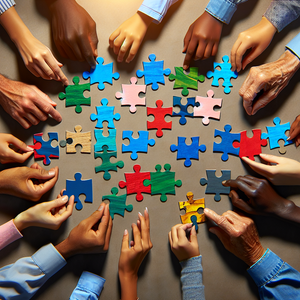The Psychology Behind ABCya: How Games Enhance Learning

At the heart of effective learning lies motivation—a driving force that compels students to engage with educational content. ABCya harnesses this power by incorporating game mechanics that naturally motivate children. According to self-determination theory, individuals are more likely to engage in activities that fulfill their intrinsic needs for autonomy, competence, and relatedness. ABCya games allow children to make choices, set their own goals, and experience a sense of achievement as they complete challenges. For instance, in games where children solve math problems to unlock new levels or earn fun animations, the platform taps into their desire for competence. This approach not only makes learning enjoyable but also fosters a sense of accomplishment, reinforcing their motivation to continue learning. When children experience success in these games, they associate learning with positive emotions, making them more likely to engage in educational activities in the future.
Engagement Through Interactivity
Engagement is another critical factor in effective learning, and ABCya excels in creating an interactive environment that holds children’s attention. Research indicates that active participation significantly enhances learning outcomes compared to passive consumption. ABCya’s games are designed to require active involvement, encouraging children to manipulate objects, make decisions, and solve problems in real-time. One example is the game "Math Bingo," where students must solve math problems to mark off numbers on their bingo cards. This interactive format keeps children actively engaged, making learning feel less like a chore and more like an adventure. Furthermore, the immediate feedback provided in these games, such as correct answers triggering positive reinforcement, boosts engagement and solidifies learning. Positive reinforcement not only encourages continued participation but also helps children understand the learning objectives more clearly.
Cognitive Development and Game Design
The design of ABCya's educational games is deeply rooted in cognitive development theories. Research by developmental psychologists, such as Jean Piaget and Lev Vygotsky, emphasizes that children learn best through experiences that challenge their existing knowledge and encourage problem-solving. ABCya’s games are crafted to promote critical thinking, creativity, and collaboration, aligning with these developmental principles. For example, games that require children to work together to solve puzzles not only enhance their problem-solving skills but also encourage social interaction and teamwork. This collaborative aspect builds cognitive skills and aligns with Vygotsky’s social development theory, which posits that social interaction is fundamental to cognitive development. By promoting teamwork, ABCya fosters a sense of community and belonging among young learners, which can enhance their overall educational experience.
Expert Insights and Research
To further explore the psychological principles behind ABCya’s success, we spoke with Dr. Emily Johnson, an educational psychologist specializing in gamification. She highlighted that "the interactive and immersive elements of ABCya’s games create a rich learning environment where children can explore concepts at their own pace." According to Dr. Johnson, this autonomy in learning is crucial for fostering a love for education. Additionally, a study published in the *Journal of Educational Psychology* found that students who engaged with gamified learning platforms like ABCya showed marked improvements in retention and understanding compared to traditional methods. The study emphasized that the combination of fun and educational content is key to effective learning. This research underscores the importance of integrating psychological principles into educational game design to maximize learning outcomes.
ABCya stands out in the realm of educational technology by effectively leveraging psychological principles that enhance learning. Through motivation, engagement, and cognitive development, the platform transforms traditional education into an interactive adventure that captivates young learners. As we continue to navigate the future of education, understanding the psychology behind these games can help parents, educators, and developers create more engaging and effective learning experiences. By embracing these principles, we can ensure that children not only learn but also develop a lifelong love for knowledge. As educational technology continues to evolve, platforms like ABCya pave the way for innovative approaches that make learning a joyful and fulfilling journey.
Educational Game Designer
ABCya, Kahoot!, BrainPOP
Core Responsibilities
Design and develop engaging educational games that enhance learning outcomes for children.
Collaborate with educators and psychologists to ensure games align with cognitive development theories and learning objectives.
Conduct user testing and gather feedback to iterate and improve game mechanics and educational content.
Required Skills
Proficiency in game design software (e.g., Unity, Unreal Engine) and programming languages (e.g., C# or JavaScript).
Strong understanding of educational theories and child psychology.
Creative problem-solving skills and ability to think critically about user engagement.
User Experience (UX) Researcher in EdTech
Google for Education, DreamBox Learning, ABCya
Core Responsibilities
Conduct user research to understand the needs and behaviors of children and educators interacting with educational games.
Analyze data to identify trends and inform design decisions that improve user engagement and learning efficacy.
Collaborate with design teams to create user personas and journey maps that guide development.
Required Skills
Expertise in qualitative and quantitative research methods, including usability testing and A/B testing.
Strong communication skills to present findings and recommendations to stakeholders.
Familiarity with EdTech products and an understanding of developmental psychology is a plus.
Curriculum Developer for Gamified Learning
Khan Academy
Core Responsibilities
Create and structure educational content that can be effectively integrated into gamified platforms.
Collaborate with teachers to ensure alignment with educational standards and learning outcomes.
Evaluate and revise curriculum based on student performance data and feedback from educators.
Required Skills
Experience in curriculum design, particularly for elementary education.
Strong writing and editing skills to produce clear and engaging educational materials.
Knowledge of instructional design models and gamification principles.
Learning Experience Designer (LXD)
EdTech startups, educational institutions
Core Responsibilities
Design interactive learning experiences that leverage gamification to improve student engagement and retention.
Work with multimedia designers to create visually appealing and effective educational content.
Assess and analyze user data to continuously improve learning experiences based on user interaction and feedback.
Required Skills
Proficiency in design tools (e.g., Adobe Creative Suite, Articulate Storyline) and familiarity with learning management systems (LMS).
Strong understanding of adult learning principles and instructional design methodologies.
Ability to synthesize complex information into engaging and accessible formats for young learners.
Educational Psychologist Specializing in Game-Based Learning
Universities, educational consultancies
Core Responsibilities
Conduct research on the cognitive impacts of gamified learning on children’s development and educational outcomes.
Provide insights and recommendations for the design of educational games based on psychological principles.
Collaborate with developers and educators to create effective strategies for integrating psychological theories into game mechanics.
Required Skills
Advanced degree in educational psychology or a related field, with a focus on developmental psychology.
Strong analytical skills to evaluate research findings and apply them to practical scenarios.
Excellent communication skills to convey complex psychological concepts to non-specialists.


